By Daily Sports on May 28, 2016

A warm welcome to you, dear reader. Let me quickly apologise for the sudden stoppage of this column some months back. It was not intentional but was informed by my appointment as the Team Manager of the legendary Rangers International Football Club of Enugu. I explained to Daily Sports Publisher that I would require some time to settle down at my new job, especially as the appointment came just as the new Nigeria Professional Football League season was about to kick off.
I thank all those who through various ways sought to find out why the column stopped suddenly. I am happy to be back and promise not to stay away for so long again, even as I seek your understanding in case I am unable to find time to write occasionally.
This week, we are going to dwell on the right to legal representation from the sports world’s perspective, which you no doubt would agree with me is a very important topic.
Ask a hundred sports fan what they like about their game of choice and you may well get hundred different answers. What you are unlikely to hear however is “I love the rules of my sports” or “I think the regulations we have in place are just great and wonderful”. In truth, regulations may all too easily be regarded as an unnecessary annoyance that merely detract from the entertainment of the sports spectacle at hand.
The above is the general conception of an average lover of a particular sport who undoubtedly does not avert his or her mind to the very important role lawyers play in the representation of clients in the sports world.
Licensed attorneys have the authority to represent persons in court proceedings and in other legal matters such as arbitration, mediation, etc.
Legal representation could simply be defined as the legal work a lawyer does on behalf of a client.
The right to legal representation is a fundamental right that is present in both criminal and civil dealings.
The Constitution of the Federal Republic of Nigeria 1999 in Section 36 (6), for instance, provides that an accused person charged with an offence has the right to defend himself in person or by a legal practitioner of his own choice.
When an accused person is charged with a capital offence and is unable to secure the services of counsel, the trial judge must appoint a counsel, even without the consent of the accused, to conduct his defence and at the expense of the state. An indigent accused person may apply for the services of a counsel through any legal aid service. In the case of Nigeria Custom Prison Service v. Adekeye (2002)7 S.C (pt.111) p.188, 195, it was observed that it is a fundamental principle of law that an accused person standing trial upon a criminal allegation be afforded the opportunity to defend himself in person or by legal practitioners of his choice.
The main objective of this write-up is not centered on the criminal justice system but on legal representation in sports, especially in football but we decided to sail from the shores of the criminal justice system to engrave the importance of the right to legal representation.
In the sports world, sports law is the body of legal issues at work in the world of both amateur and professional sports. Sports law overlaps substantially with labour law, contract law, competition law and tort law. Issues like defamation and privacy rights are also integral aspects of sports law. This area of law was established as a separate and important entity only a few decades ago, coinciding with the rise of player-agents and increased media scrutiny of sports law topics.
The scope of sports indeed is one that creates ample opportunity for lawyers to thrive in the area of representation of sportsmen and women. This is because of the wide range of legal cum quasi-legal activities inherent in the administration of sports.
It should be noted that because of the peculiarity and specificity of sports, especially football, conflicts arising out of football do not go to regular civil courts but resort to arbitration and other machineries established by the sports institution is had.
In the football world, for instance, FIFA has made adequate provisions for the resolution of disputes and the institutions responsible for the amicable resolution of such disputes as they may from time to time arise.
Article 66 of the FIFA Statute 2015 which provides for the Court of Arbitration for Sport (CAS) has in its Paragraph (1): “FIFA recognizes the independent Court of Arbitration for Sport (CAS) with headquarters in Lausanne (Switzerland) to resolve disputes between FIFA, members, Confederations, Leagues, Clubs, Players, Officials, intermediaries and licensed match agents”.
Article 66 (2) of FIFA Statute 2015, further provides that “the provisions of the CAS Code of Sports-related Arbitration shall apply to the proceedings. CAS shall primarily apply the various regulations of FIFA and, additionally, Swiss law”.
The above provision of the Statutes of FIFA is a pointer to the means of resolution of disputes arising from the sports of football. Now, any person who wishes to have his or her issue thrashed out by the CAS has the right to procure the services of a legal practitioner of his or her own choice. At the moment only Barrister Okey Obi and Mr Ademola Olajire from Nigeria have at one point or the other served as Arbitrators in CAS.
Let’s meet again here next Saturday for more on this.
Till then.
Source Daily Sports
Posted May 28, 2016
You may also like...

Djokovic into Geneva semi-finals on 38th birthday

Frankfurt To Seal Move For Onuachu Today
_2_150x150.jpeg)
Eric Chelle's Super Eagles get major boost as...

CAF award nomination thrills Abiodun

AC Milan Beat Verona To Close In On...

Super Eagles set to meet Buhari ahead of...

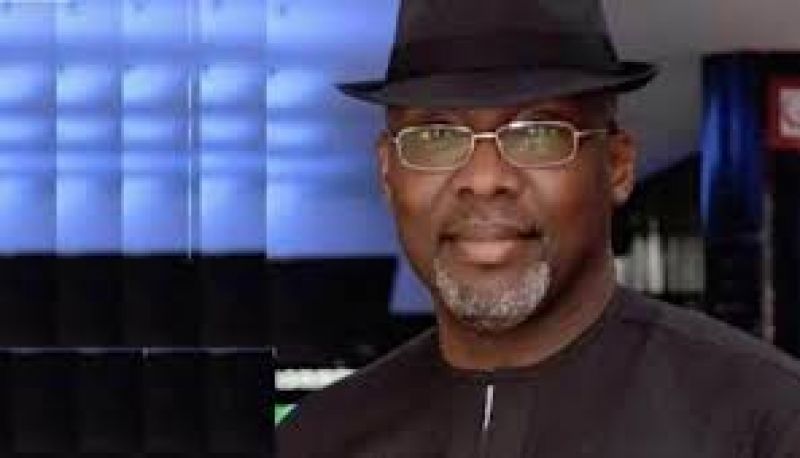 Orbih returns for third stint as Nigeria badminton boss
Orbih returns for third stint as Nigeria badminton boss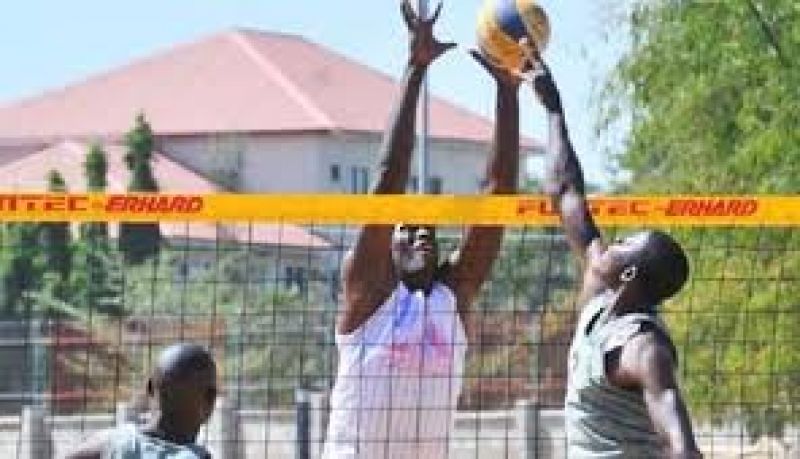 Customs, Vipers shine at Ghana volleyball champs
Customs, Vipers shine at Ghana volleyball champs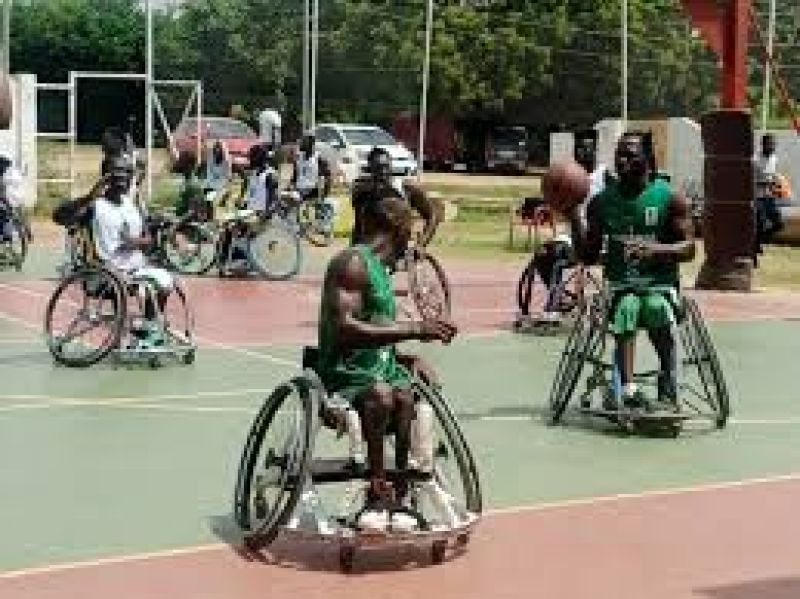 Wheelchair basketball camp opens ahead C’Wealth Games qualifiers
Wheelchair basketball camp opens ahead C’Wealth Games qualifiers Abinusawa wins double Ivy conference gold
Abinusawa wins double Ivy conference gold Teen star Oji breaks African shot put record
Teen star Oji breaks African shot put record Sanwo-Olu to host World School Games, African Youth Games athletes
Sanwo-Olu to host World School Games, African Youth Games athletes Osimhen rallies Gala teammates for Super Lig, UCL run-in
Osimhen rallies Gala teammates for Super Lig, UCL run-in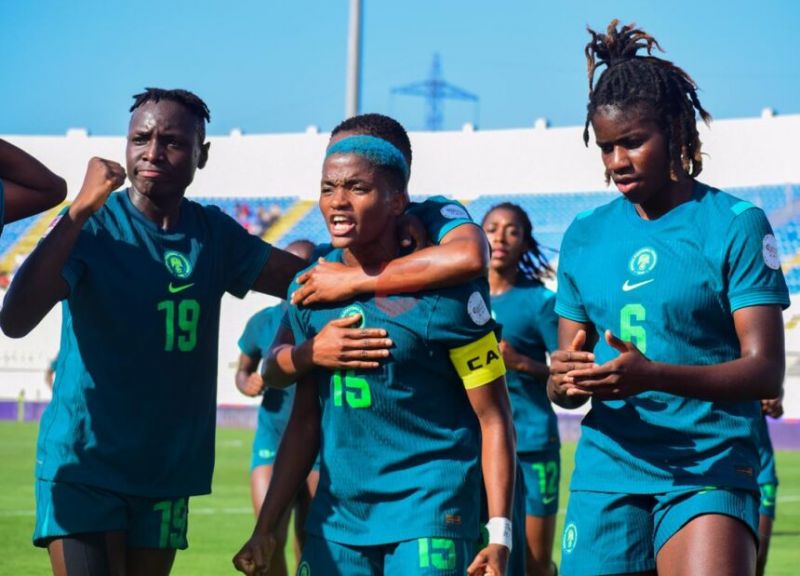 Super Falcons regroup for Cameroon double-header
Super Falcons regroup for Cameroon double-header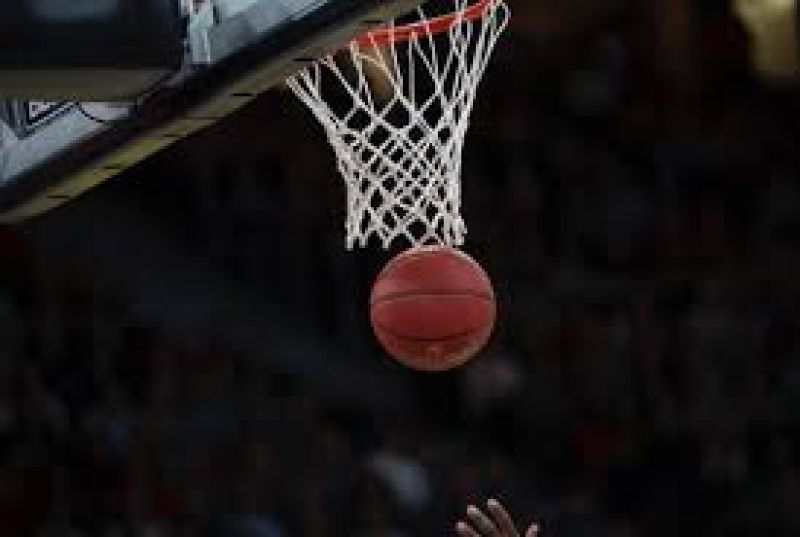 Ibadan to host FASU Afro-Varsity 3×3 Basketball Challenge
Ibadan to host FASU Afro-Varsity 3×3 Basketball Challenge Family seeks N20m ransom as Oyo govt probes player’s kidnap
Family seeks N20m ransom as Oyo govt probes player’s kidnap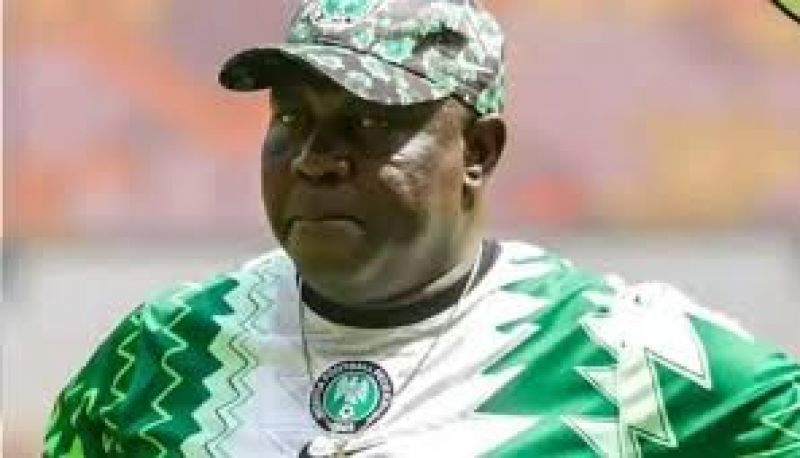 Cameroon friendly to shape WAFCON squad — Madugu
Cameroon friendly to shape WAFCON squad — Madugu Fury sends Joshua support, turns down bout after tragedy
Fury sends Joshua support, turns down bout after tragedy Rangers International going, going . . . (63,590 views)
Rangers International going, going . . . (63,590 views) Amaju Pinnick: A cat with nine lives (54,909 views)
Amaju Pinnick: A cat with nine lives (54,909 views) Second Term: Amaju Pinnick, Other NFF Heavyweights Home to Roost •How Pinnick Broke the Jinx (52,819 views)
Second Term: Amaju Pinnick, Other NFF Heavyweights Home to Roost •How Pinnick Broke the Jinx (52,819 views) Current issues in Nigerian sports: Matters arising (52,443 views)
Current issues in Nigerian sports: Matters arising (52,443 views) Sports Development: Zenith Bank on the zenith (52,357 views)
Sports Development: Zenith Bank on the zenith (52,357 views) Missing $150,000 IAAF Grant: Solomon Dalung’s Hide and Seek game (52,272 views)
Missing $150,000 IAAF Grant: Solomon Dalung’s Hide and Seek game (52,272 views) Gov. Abdullahi Ganduje’s solid footprints, commitment to sports development in Kano State (52,149 views)
Gov. Abdullahi Ganduje’s solid footprints, commitment to sports development in Kano State (52,149 views) NFF Presidency: Pinnick, Maigari, Ogunjobi, Okoye in Battle for Supremacy (51,688 views)
NFF Presidency: Pinnick, Maigari, Ogunjobi, Okoye in Battle for Supremacy (51,688 views) Olopade, BET9A wave of revolution in NNL (50,862 views)
Olopade, BET9A wave of revolution in NNL (50,862 views) Commonwealth Games 2018: Shame of Muhammadu Buhari, Solomon Dalung (49,383 views)
Commonwealth Games 2018: Shame of Muhammadu Buhari, Solomon Dalung (49,383 views) Ibrahimovic’s Man U exit: Whose decision is it? And in whose interest? (47,776 views)
Ibrahimovic’s Man U exit: Whose decision is it? And in whose interest? (47,776 views) John Mikel Obi: Segun Odegbami’s Outrageous Call! (47,252 views)
John Mikel Obi: Segun Odegbami’s Outrageous Call! (47,252 views)